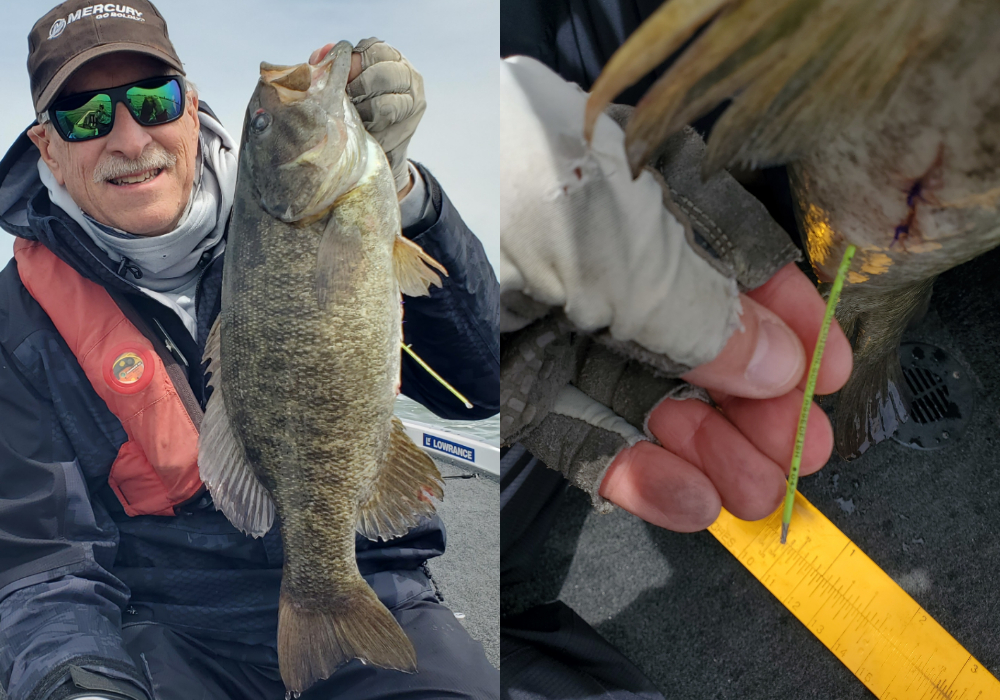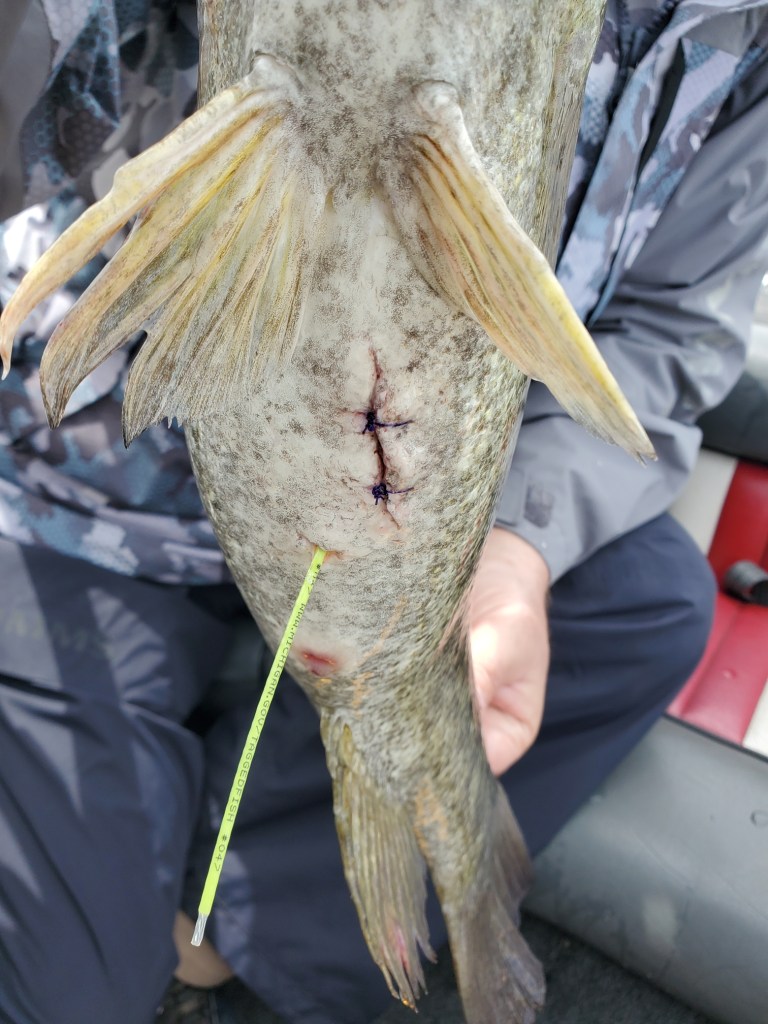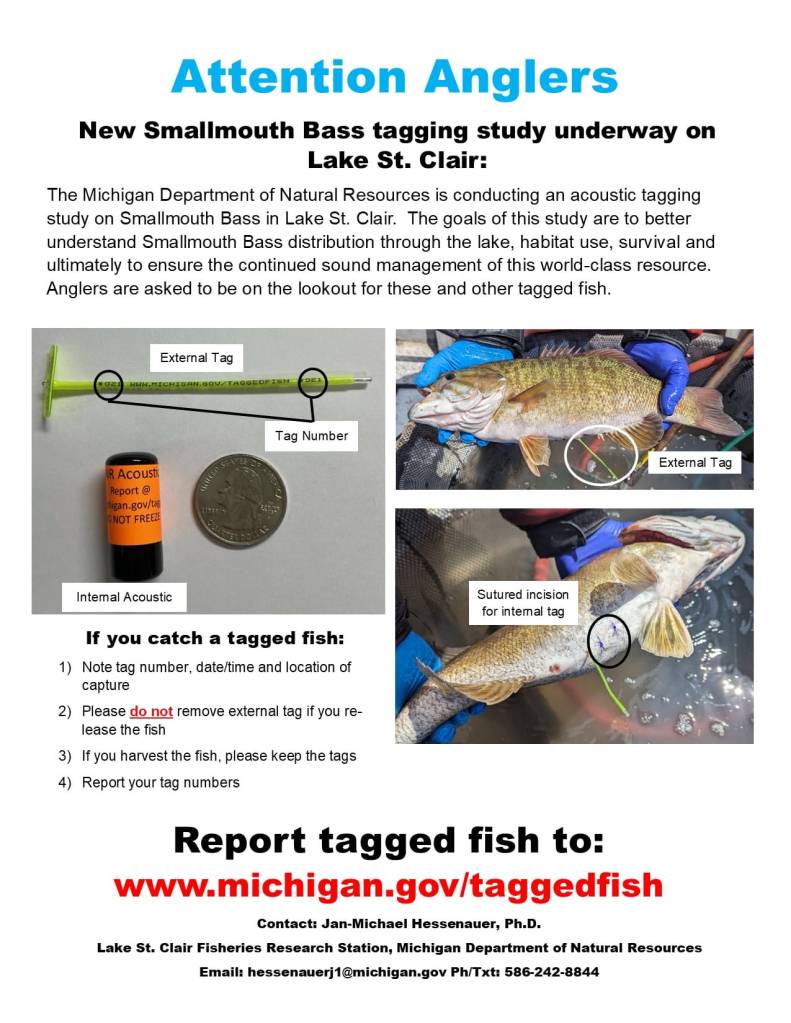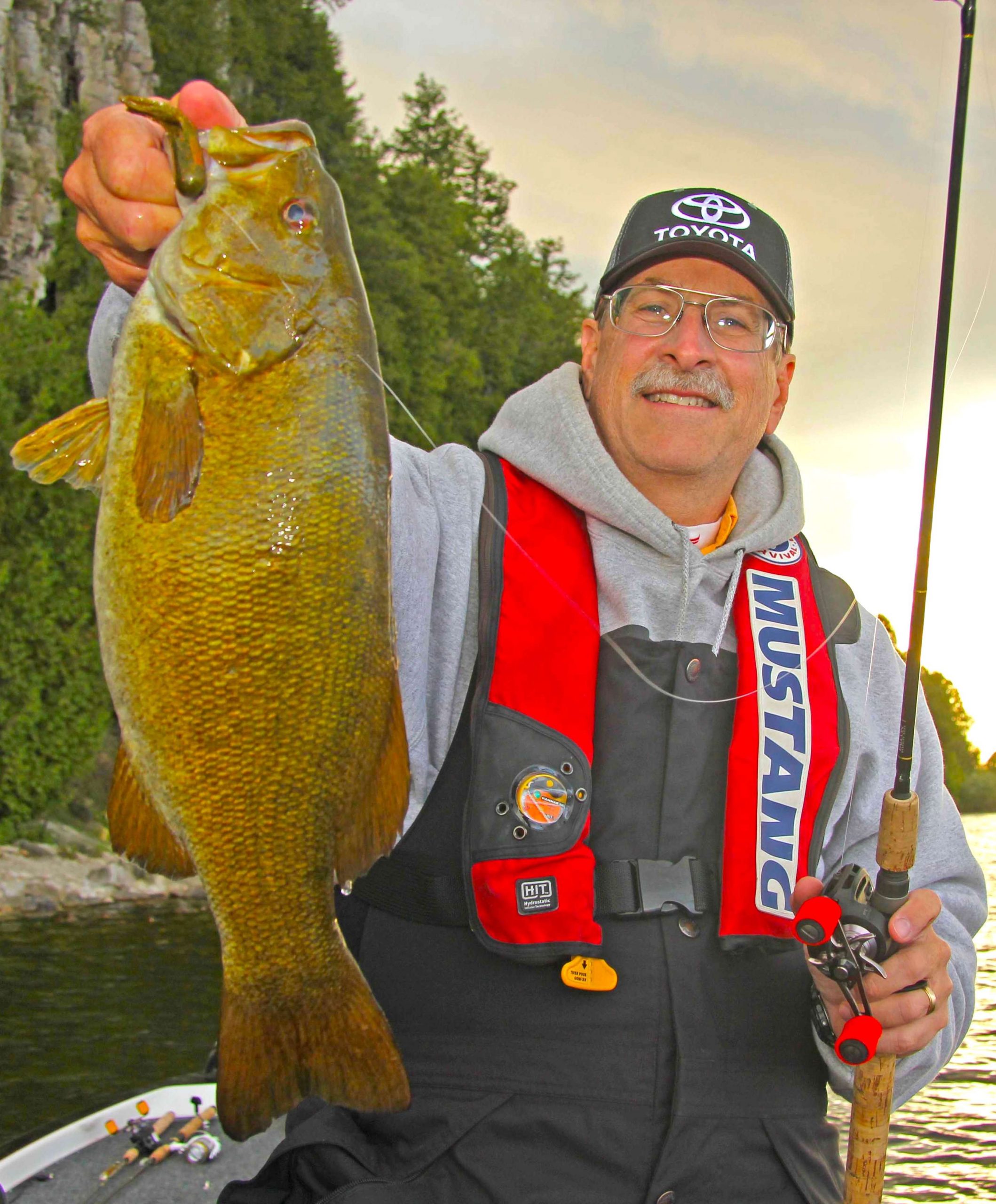
For the past 15 years I’ve made a pilgrimage in early May to Lake St. Clair in Michigan to catch smallmouth bass. We meet up with guys from several states for a week of fishing and fellowship.
This year on a cool and windy Monday morning, we were fishing in Big Muskamoot Bay when I caught a prespawn smallmouth that weighed 4.4 pounds. Not an exceptionally big bass, but this fish was special. It had a bright yellow spaghetti tag protruding from its belly. I knew immediately what I had caught. It was among bass that were implanted with acoustic transmitters so that Michigan Department of Natural Resources (MDNR) biologists can track bass movements in Lake St. Clair.
This project was detailed in a Bassmaster.com article written by MDNR biologist Jan-Michael Hessenauer. In July 2023, researchers partnered with B.A.S.S. to tag fish caught during the Bassmaster Elite Series tournament held at Brandenburg Park. Tags were purchased through a conservation grant provided by the Bass Fishing Hall of Fame and were implanted into 15 smallmouth bass that were caught and weighed in during the tournament. Each bass was also given an external tag with a unique number so anglers could report their catch.

On Thursday, May 2, 2024, MDNR tagged 20 bass each in three locations on Lake St. Clair — Anchor Bay, the Mile Roads and Muskamoot Bay. When I reported my catch to MDNR, I found out my fish had been captured by electrofishing and tagged just four days before I caught it! This bass had already resumed normal activity and was actively feeding after undergoing surgery and having a transmitter placed in its body.
Now here is an even crazier part of the story … I got a text from Jan-Michael the next week telling me the same fish had been caught again just seven days after I caught it. Pretty remarkable testimony to the skill of the biologists doing the surgery — and to the resilience of that bass.
If you are planning a trip to Lake St. Clair, be on the lookout for tagged bass. The MDNR flier explains what to look for and how to report your catch. I know I’m looking forward to seeing results from this tracking study and hope that in some small way, I was able to contribute to the management of smallmouth bass in one of my favorite fisheries.






